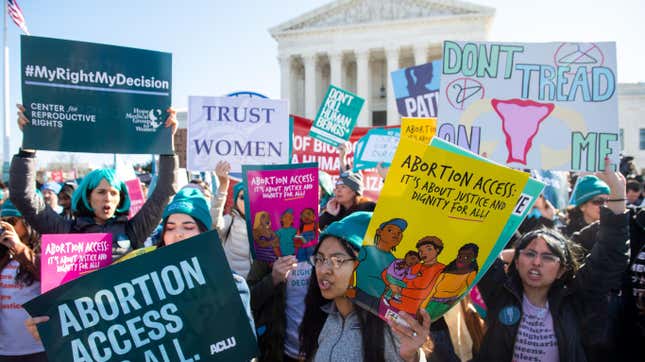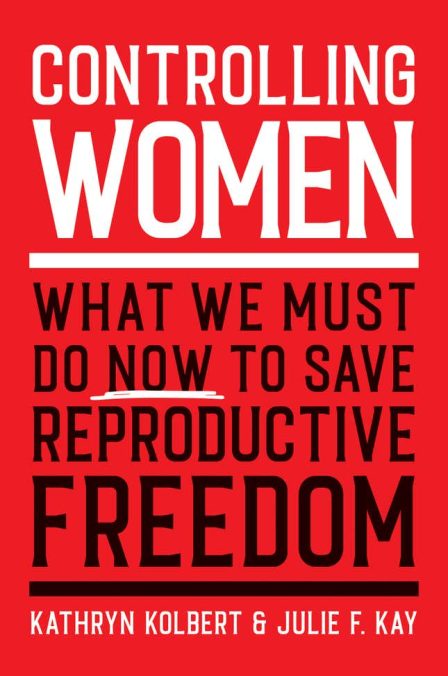With Roe Teetering on Total Collapse, Abortion Activism Is More Important than Ever
Progress does not happen without popular support, direct action, and outrage in the streets
AbortionPolitics
Image: (Photo by SAUL LOEB/AFP via Getty Images)
Below is an excerpt from Controlling Women: What We Must Do Now to Save Reproductive Freedom, by Kathryn Kolbert and Julie F. Kay, who have spent years on the frontlines of the battle to protect reproductive rights.
We started our book standing in protest in front of the Supreme Court. Neither of us is very good at chanting or making signs, and we both feel more comfortable in a courtroom than in a street dance. While we always enjoy being with friends, kids, and colleagues for a good cause on a sunny day, that’s not the reason we show up.
Progress does not happen without popular support, direct action, and outrage in the streets. History has taught us that activists loudly calling for social change is a movement’s lifeblood. A bold, loud, strategically targeted movement creates a sense of urgency, gains broader allies, and propels progress.

Our post-Roe world will demand that many people engage in activism. The best way is the one that works for you, something that is sustainable and hopefully fun too. In college Julie used to hide behind the lens of the camera at protests and then publish the photos in the campus newspaper. Kitty and her wife Joann owned a microphone and portable sound system that they loaned out to activists who literally wanted to amplify their voices.
In the days before Roe, women with means were able to travel to New York, London, or Japan for legal abortion or to Puerto Rico or Mexico, where abortion was more accessible or affordable, even if not entirely legal. Unfortunately, those left behind—low-income women, teens, those in violent relationships—turned to back-alley providers or were forced to carry their pregnancies to term. In a post-Roe world, such a discriminatory and inequitable system should not stand.
Some activists can help women obtain abortion services, much like Rosa Hartford, who took a teenager facing an unintended pregnancy to a clinic in a nearby state. With all the restrictions on teens’ access to reproductive health care, particularly waiting periods and parental involvement laws, many teens are in need of a trusted adult to support them and connect with professional counselors and providers. We must set up networks of supporters who will assist teens in making their decision whether to abort or not and help them to implement that decision whether by obtaining an abortion or by finding the resources they will need to succeed as a teen parent.
Low-income and undocumented women, who are disproportionately women of color, as well as survivors of domestic violence or women with disabilities, have an increased need for access to resources and counseling in order to find services. Travel across state lines, overnight stays, additional childcare, and other expenses create further strain. When abortion was illegal in Ireland, the Abortion Support Network in London would provide women in Ireland with funds and information about clinics abroad, help schedule appointments, arrange travel, and connect them with volunteers who could offer a place to stay. In the US, the National Network of Abortion Funds works to remove financial and logistical barriers to abortion access through a network of funds.
Time and time again, research has shown that as abortion gets harder to obtain, it does not go away—it goes underground. The good news is that with self-managed medication abortion now an option, women need not return to the pre-Roe days when back-alley abortions were performed by scary practitioners in unsanitary and unsafe conditions. As state restrictions, provider shortages, and outright bans put abortion further out of reach, more and more women are likely to use medication abortion on their own to terminate an unintended pregnancy.
-

-

-

-

-

-

-

-

-

-

-

-

-

-

-

-

-

-

-

-

-

-

-

-

-

-

-

-

-

-

-

-

-

-

-

-

-

-

-

-








































